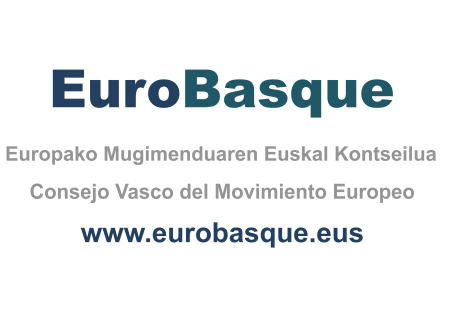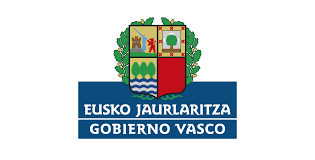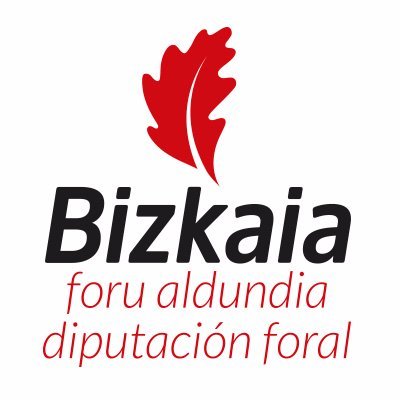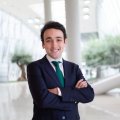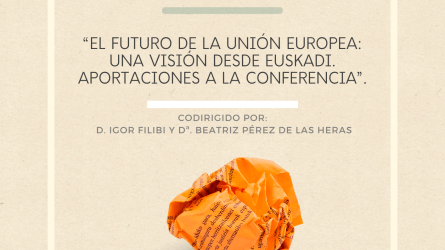
The Future of the European Union: a vision from the Basque Country. Contributions to the Conference
Description
This Summer Course will be held face-to-face and there will also be the possibility of participating live online through ZOOM. In the registration process, please select the participation of your choice: face-to-face or live online.
Citizenship, civil society and the institutions of the European Union (EU) are immersed in an in-depth debate on the future of the EU, in the forum established by the Conference on the Future of Europe, which has been upset by the COVID-19 pandemic.
The aim of the Conference on the Future of Europe is to provide a forum for discussion with citizens on crucial issues of importance to EU development in the medium and long term. Such issues include the future of Europe's economic and social system, sustainability, climate protection, innovation, digital transformation and the EU's core values. The Conference will also explore the possibilities of incorporating citizen proposals into European policies and standards.
The main objective of this Summer Course organised by EuroBasque is to promote reflection and the generation of ideas and proposals to address the many and momentous challenges currently facing the EU. Among them:
The main objective of this Summer Course organised by EuroBasque is to promote reflection and the generation of ideas and proposals to address the many and momentous challenges currently facing the EU. Among them:
- Environmental challenges and the climate crisis, an area in which the EU has set out to achieve climate neutrality by 2050.
- The creation/consolidation of an effective system for the defence of human rights and the rule of law in the EU.
- The enormous economic, social and health impact caused by Covid-19: evaluation of European solidarity mechanisms and the EU's responsiveness to systemic crises.
- The implementation of the European Pillar of Social Rights as a key instrument for achieving social justice and equality in the EU.
- Migration as a challenge that Europe cannot ignore, which can offer opportunities for a continent characterized by demographic decline and labour markets that need workers.
- The development of an effectively integrated European Defence Union.
- The enlargement process and future accessions of new Member States.
- Deepening Economic and Monetary Union (EMU), an economy that works for people.
- Europe's digital strategy. The challenge of the digitisation of the European economy and society.
- Promoting European values, strengthening the EU's voice in the world, as well as underpinning the democratic foundations of the Union. The EU's role in the world: promoting multilateralism, democratic values and sustainable development.
- Democratic processes and institutional issues of the EU: and in particular, comprehensive reform of electoral legislation: the "Spitzenkandidaten" system and the transnational lists for elections to the European Parliament in 2024.
- Institutional reforms for a more democratic and effective Union.
- Strengthen representative democracy and participatory democracy at European level, involving citizens through ongoing channels of dialogue.
- The definition and promotion of concrete forms (formulas) that allow an adequate fit of political communities with regulatory competences, such as the Basque Country, in the Union.
Objectives
Promote reflection and the generation of ideas and proposals that make it possible to tackle the multiple and far-reaching challenges currently facing the EU.
Activity directed to
- University students
- Students not from university
- Teachers
- Professionals
- All public
Contributors
Program
08-07-2021
Institutional Opening session
- Bakartxo Tejeria Otermin Eusko Legebiltzarra - Presidentea
- Eva Ferreira Garcia UPV/EHU - Rectora
- Ander Arzelus Aramendi Gipuzkoako Foru Aldundia / Diputación Foral de Gipuzkoa - Kanpo harremanetarako arduraduna/ Responsable de relaciones externas
- Irune Zuluaga Zamalloa EuroBasque - Presidentea
BLOQUE 1: La Conferencia Europea como proceso de reflexión y relanzamiento de la UE
“Introducción y moderación“
- Beatriz Pérez de las Heras Universidad de Deusto - Catedrática de Derecho de la Unión Europea
“Europe will always have a future! "Europa siempre tendrá un futuro"“
- José Conde Rodrigues Conselho Português do Movimento Europeu International
“La Conferencia sobre el Futuro de Europa: necesaria y a tiempo de impulsarla“
- Josune Gorospe Elezcano Miembro de la Conferencia Europea (CoFoE) - Miembro del Congreso de los Diputados
Debate
Break
BLOQUE 2: El Plan de recuperación de Europa: un acto de naturaleza federal
“El Plan de recuperación para Europa: un hito, una oportunidad para avanzar en la transformación económica, y algunos riesgos“
- Javier Bilbao Ubillos UPV/EHU
“Transición ecológica“
- Lara Esther Lazaro Touza Real Instituto Elcano - Investigadora
“Digitalización“
- Igor Calzada Múgica Universidad de Oxford - Lecturer, Research Fellow, and Policy Adviser
Debate
Break
Round table: “La juventud vasca y el futuro de Europa“
- María Luz Suarez Castiñeira Catedrática de la Facultad de Ciencias Sociales y Humanas de la UD y - Directora del Dpto de de Relaciones internacionales y Humanidades de la UD (Moderator)
- Aitor Ugarte Gómez Equipo Europa Euskadi - Portavoz
- Asier De Miguel Amilibia ADUEEE - Secretario de organización
- Eneko Ander Romero Amantes Gazte Agora Eusko Ikaskuntza
- Inazio López Ochoa Global Shapers Hub Bilbao - Curator
Debate
09-07-2021
“Conferencia inaugural: El papel de la sociedad civil en la Conferencia Europea“
- Francisco Aldecoa Luzárraga Miembro de la Conferencia Europea (CoFoE) - Presidente del CFEME
BLOQUE 3: Hacia una Unión Europea Federal
“Introducción y moderación“
- Igor Filibi López EuroBasque - Secretario General
“Davide María Sassoli“
- Davide María Sassoli Parlamento Europeo - Presidente. (VIA VIDEO)
“La España federal en la Federación Europea“
- Enrique Barón Expresidente del Parlamento Europeo - Miembro del CFEME
Debate
Break
BLOQUE 4: El encaje de Euskadi en la Unión federal
“El poder local vasco en Europa“
- María del Mar Zabala Mardaras EUDEL - Directora general - Zuzendari nagusia
“El encaje de Euskadi en Europa a través de la Eurorregión Nueva Aquitania-Euskadi-Navarra“
- Arola Urdangarin Ferreira Eurorregión Nueva Aquitania-Euskadi-Navarra - Directora General. (PARTICIPA VIA ZOOM)
“Por un lugar para las Regiones en el sistema institucional y de decisión en la UE“
- Alberto López Basaguren UPV/EHU - Catedrático Derecho Constitucional
Debate
“Debate y reflexiones finales“
- Igor Filibi López Eurobasque - Secretario General
- Beatriz Pérez de las Heras Universidad de Deusto - Catedrática de Derecho de la Unión Europea
Directors

Igor Filibi López
Eurobasque, Secretario General
Igor Filibi (Bilbao, 1971) se licenció en Ciencia Política y de la Administración (1995) y en Sociología Política (1997). Su formación de postgrado incluye diplomas en integración europea (1996) y en Derecho Constitucional y Ciencia Política (Madrid, Centro de Estudios Constitucionales, 1997). Cursó el programa de doctorado del Departamento de Derecho Internacional Público y Relaciones Internacionales (avalado con la mención de calidad del Ministerio de Educación) y defendió su Tesis en 2004, obteniendo la máxima calificación (sobresaliente cum laude por unanimidad). El tema de tesis consistía en explorar la influencia del proceso de integración política sobre los conflictos de las naciones sin Estado. A continuación trabajó en el proyecto europeo EUROREG (financiado por la Comisión Europea; contrato FP6 506019) entre septiembre de 2004 y agosto de 2007. Actualmente trabaja como profesor en el Departamento de Relaciones Internacionales de la Universidad del País Vasco.
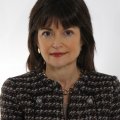
Beatriz Pérez de las Heras
EuroBasque, Vocal de la Junta Directiva
Beatriz Pérez de las Heras is Professor of European Union Law and Jean Monnet Chair on European Integration at the University of Deusto (UD). PhD in Law (UD), she accomplished post-graduate studies at the Centre Européen Universitaire de Nancy (France), where she obtained the DESS and DEA en Droit Communautaire. She was Director of the European Studies Institute at UD from 1996 to 2009 and also served as Vice-Dean for Research and International Relations at Deusto Faculty of Law from 2013 to 2015. She has been a visiting scholar at the Universities of Oregon (2009), Georgetown (2012), Fordham (2013), Boston College (2014) and Florida International University (2016). She is currently Editor-in- Chief of Cuadernos Europeos de Deusto Journal (SCOPUS-indexed ) and Main Researcher of the “Integración Europea y Derecho Patrimonial” research team. She is author of several books on European legal issues.
Speakers
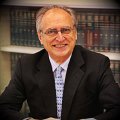
Francisco Aldecoa Luzárraga
Asoc. Cul. EUROCAMPUS
Presidente Del Consejo Federal Español del Movimiento Europeo, pertenece al mismo desde los años 70. Fue anteriormente Secretario General del Consejo Vasco del Movimiento Europeo 1994-2002, Catedrático Jean Monnet de la Unión Europea, Catedrático de Relaciones Internacionales en la Universidad Complutense de Madrid (UCM) desde el año 2000 y anteriormente en la UPV-EU desde 1990 en la que fue Vicerrector y Rector en funciones. En la UCM ha sido decano de la facultad de Ciencias Políticas y Sociología desde 2002 a 2010 y ha sido también presidente de la Asociación Española de Profesores de Derecho Internacional y de Relaciones internacionales (206-2010). Ha sido Director del Centro de Gestión de la UCM (2011-2015).
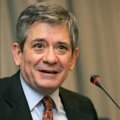
Enrique Barón
Abogado y economista; Miembro del PSOE desde 1977; Diputado al Parlamento Europeo desde 1986 (Grupo Socialistas Europeos); Licenciado en Derecho y en Administración de Empresas, ICADE, Madrid y de ESSEC, Paris; Profesor de Economía Agraria del Instituto Nacional de Estudios (ENEA) de Valladolid y Profesor de Estructura Económica de la Universidad de Madrid (1966-1970); Diputado en las Cortes Generales desde 1977. Portavoz Económico y Presupuestario del Grupo Parlamentario Socialista entre 1977 y 1982; Ministro de Transportes, Turismo y Comunicaciones entre 1982 y 1985; Presidente del Movimiento Europeo Internacional de octubre 1987 a 1989; Vicepresidente del Parlamento Europeo de 1987 a 1989; Presidente del Parlamento Europeo de julio 1989 a enero 1992; Presidente de la Comisión de Asuntos Exteriores y de Seguridad de enero 1992 hasta julio 1994; Miembro Comisión de AAEE, Seguridad y Política de Defensa; Comisión de Presupuestos; Delegación para las relaciones con Japón.
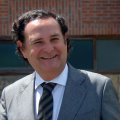
Javier Bilbao Ubillos
Javier Bilbao-Ubillos, graduated in Economics (University of the Basque Country) and Law (University of Deusto, S.J.), obtained his Doctorate in 1990 (University of the Basque Country). He extended his studies at the European University Institute (Florence, Italy). Now, he is a Full Professor in the Department of Applied Economics I of the University of the Basque Country (Spain). Research interests: Globalization and EU integration; Public policies; Social protection systems; Labour market and wage devaluation policy; Industry 4.0; Motor industry; Regional economics. He is the author of 23 books and 80 articles in journals as European Urban and Regional Studies, Economic and Political Weekly, Transportation Research Part A: Policy and Practice, Revista de Estudios Políticos, Hacienda Pública Española, Administration & Society, International Journal of Social Welfare, International Journal of Technology Management, Economic Development Quarterly, Revista de Economía mundial, Journal of Economic Policy Reform, Urban Studies, Tijdschrift voor economische en sociale geografie, Economía industrial, Public Money & Management, Gestión y Política Pública, Sustainable Development, Social Indicators Research, Applied Economics Letters, European Review, Transportation Letters, Innovation o The Social Science Journal.
Dr Igor Calzada, MBA, FeRSA, is Senior Researcher, Lecturer, and Advisor in digital, urban, and political transformations. His research intersects citizenship, social innovation, and digital rights/sovereignty. Recently, his book entitled Smart City Citizenship has been published via Elsevier. He currently works at Cardiff University, WISERD, and University of Oxford, Urban Transformations ESRC and H2020 as well as giving advice to UN and the Basque Government in citizenship and digitalization. Previously he worked as Senior Scientist at the European Commission, JRC, in Italy and has been Senior Lecturer at the University of Strathclyde (Glasgow), Aston University (Birmingham), Vrije (Brussels), and was Associate Researcher at Nevada (US). He was awarded by Ikerbasque and Caja Madrid Foundation. International keynote speaker with more than 100 scientific publications. He has been director and speaker in several editions of Summer Course. He worked as project director at the Mondragon C

José Conde Rodrigues
Presidente Conselho Português do Movimento Europeu International
President of the Directive Council of the Portuguese Council of the European Movement Lawyer, Of Counsel at FB & Associados, Sociedade de Advogados, SP, RL Guest Assistant Professor at ISCTE Business School Researcher at the Catholic Research Centre for the future of Law, Catholic University of Portugal Referee on the list of the CAC – Commercial Arbitration Centre of the Portuguese Chamber of Commerce and Industry Referee on the CAAD (Administrative Arbitration Centre) list Member of GRES (Security Strategy Reflection Group) of Universidade Nova de Lisboa
Asier De Miguel Amilibia
- EPO, ESO y Bachiller en Colegio Alemán "San Alberto Magno" de San Sebastián. - Estudiante de Grado en Derecho UPV/EHU 2017-2021. - Estudiante de Inteligencia Artificial y Ética en The Egg, la escuela de IA de la empresa Skootik, desde 2021. - Miembro de ADUEEE (Asociación de Debate de la UPV/EHU) desde 2018. Secretario de Organización ADUEEE desde junio 2019 hasta la actualidad. - Segundo puesto en el concurso de discursos del G9 2019 representando a la UPV/EHU. - Formador en oratoria y debate del curso ofertado anualmente por la UPV/EHU a estudiantes de grado, máster y doctorandos.
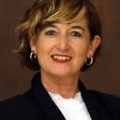
Josune Gorospe Elezcano
Miembro del Congreso de los Diputados por Bizkaia (EAJ/PNV)

Lara Esther Lazaro Touza
Real Instituto Elcano
Lara Lázaro is a principal investigator at the Elcano Royal Institute and a professor of Economic Theory at the Cardenal Cisneros Higher Education Center (attached to the Complutense University of Madrid). PhD from the London School of Economics and Political Science (LSE) and Master in Environmental Assessment and Evaluation, also from the LSE. She also has a degree in Economics from the Autonomous University of Madrid. She has been a researcher at the Real Instituto Elcano's Energy and Climate Change Program (2009-2011), and previously worked at the LSE as a Postdoctoral Fellow and at Bloomberg. She has been the director of the Master in Environmental Management at the Instituto de Empresa, in which she has also taught classes on environmental policy and decision-making processes. As a consultant, she has worked for Abengoa Research on a project on the “Energy Transition and Climate Change”, as well as for the Repsol Technology Center in the HEREDERA project.
Alberto López Basaguren
UPV/EHU, Catedrático de Derecho Constitucional
Catedrático de Derecho Constitucional UPV/EHU. Life Member de Clare Hall College, Universidad de Cambridge (RU). Comité de Expertos de la CELRM, Consejo de Europa, 2006-2013; Consejo Asesor del Euskera, 2007-2016; Comisión Arbitral, 2009-2015. Publicaciones recientes: (2018) «Claims for Secession in Catalonia. Rule of Law, Democratic Principle and Federal Alternative in Spain», en Claims for Secession and Federalism. A comparative Study with special focus on Spain, Heidelberg, Springer (forthcoming); (2017) «Brexit: La secesión de la Unión Europea entre teoría y realidad», Teoría y Realidad Constitucional, 40; (2017) «Regional Defiance and Enforcement of Federal Law in Spain. The claims for sovereignty in the Basque Country and Catalonia», The Enforcement of EU Law and Values. Ensuring Member States' Compliance, Oxford UP; (2016) «Scottish referendum and Catalan 'consultation': two experiences in the mirror», Autonomies et indépendences: le nationalisme au XXIe. siècle, Paris

Inazio López Ochoa
Global Shapers Bilbao, Curator
Graduado de SciencesPo Bordeaux en Ciencias Políticas y en Derecho por la UOC. Actualmente presentador en el programa de actualidad política de etb2 ‘En Jake’. Desde Julio 2021, Curator de Global Shapers Bilbao; una iniciativa amparada por el Foro Económico Mundial.

Ponente Pendiente De confirmar

Eneko Ander Romero Amantes
Ikertzaile aurredoktorea (2017-2021) EHUko Politika eta Administrazio Zientzien sailean, ParteHartuz ikerketa taldeko kidea, Bilbo-Bartzelona Teoria Kritikoa taldeko partaidea eta Gazte Lankidetzarako Sareak proiektuaren zuzendarikidea Eusko Ikaskuntzan (2019-…). Politika Zientzian eta Kudeaketa Publikoan graduatua, masterra Gobernantza eta Ikasketa Politikoetan eta unibertsitate-aditua Lanaren Soziologian. Ikertzaile aurredoktore gonbidatua izan da Université de Québec à Montréaleko CRÉQC katedran. Horrez gain hainbat jardunaldi, ikastaro eta kongresuetan parte hartu du Euskal Herrian, Katalunian, Frantzian, Italian eta Kanadan.
Ingeniero Informático por la Universidad de Deusto apasionado por la Administración Pública y la Unión Europea. Su formación de postgrado incluye los programas ejecutivos de Gestión de Proyectos (IE Business School) y Liderazgo en la Innovación (MIT), donde ha adquirido los conocimientos y las competencias que utiliza en su día a día. Actualmente, trabaja como Consultor del Sector Público para Organizaciones Internacionales en una multinacional y ejerce el cargo de Portavoz de Equipo Europa x Euskadi; cuya labor es la de coordinar a más de 80 socios/as y establecer relaciones público-privadas en el territorio vasco. Es también miembro de varias organizaciones vinculadas al ámbito de la juventud, participación y ODS (Bizkaia Talent, Global Shapers Bilbao y UNESCO Etxea).
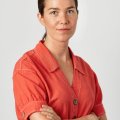
Arola Urdangarin Ferreira
Graduated in Political Science from Sciences Po Bordeaux and the Autonomous University of Madrid, specialized in European affairs after taking the Master “Carrières Européennes” at Sciences Po Bordeaux, I have been working at the EGTC Nouvelle-Aquitaine Euskadi Navarra Euroregion since 2015 and directing it since 2019.
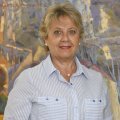
María del Mar Zabala Mardaras
EUDEL
Directora General de EUDEL-Asociación de Municipios Vascos desde el 27 de abril de 1993 hasta la actualidad. Es miembro de los Secretarios Generales del Consejo de Municipios y Regiones de Europa (CMRE) y participa en las sesiones plenarias del Congreso de Poderes Locales y Regionales de Europa (CPLRE). Secretaria de EUDEL desde el 1 de agosto de 1986 al 27 de abril de 1993. Profesora del Instituto de Estudios Europeos de la Universidad de Deusto (Especialidad sociopolítica). Formación Licenciada en Derecho por la Universidad de Deusto. Diplomada en Comunidades Europeas (Especialidad Jurídica), por el Instituto de Estudios Europeos de la Universidad de Deusto. Diplomada en Relaciones Internacionales, así como en Comunidades Europeas, por l`Institut des Hautes Etudes Internationales de la Universidad de Niza (Francia) Cursos de Doctorado y Curso de Derecho Autonómico por la Universidad de Deusto. Curso de Derecho Internacional en la Academia de Derecho Internacional de la Haya

Davide María Sassoli
Presidente del Parlamento Europeo desde 2019, miembro del Grupo de la Alianza Progresista de Socialistas y Demócratas, y miembro de la formación Italia - Partito Democratico (Italia).

María Luz Suarez Castiñeira
Doctora en Literatura Europea Comparada (UPV/EHU, 1992), en la actualidad es directora en el Dpto de Relaciones internacionales y Humanidades de la Universidad de Deusto. Ha dirigido tesis doctorales y ha participado en varios proyectos europeos en torno al diálogo inter y transcultural, la construcción de la identidad europea y la dimensión del multilingüismo y su relación con el concepto de ciudadanía europea. Entre 2010 y 2015 dirigió el Instituto de Estudios Europeos de la Universidad de Deusto, y desde entonces ha participado activamente en la publicación de la Revista Cuadernos Europeos de Deusto. Sus líneas de investigación prioritarias son 1) las políticas culturales y el papel de la cultura en el proceso de integración europea, y 2) el análisis de los discursos de securitización y la construcción retórica de identidades políticas y culturales.
